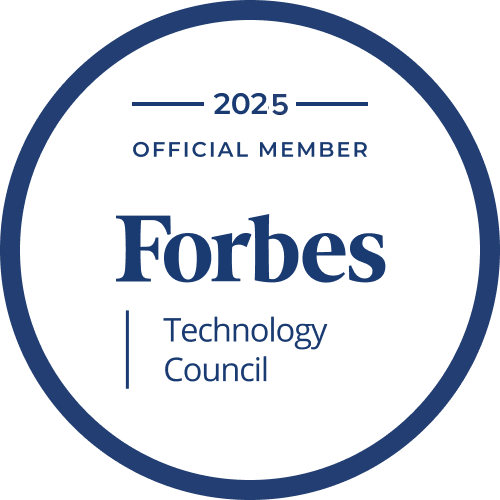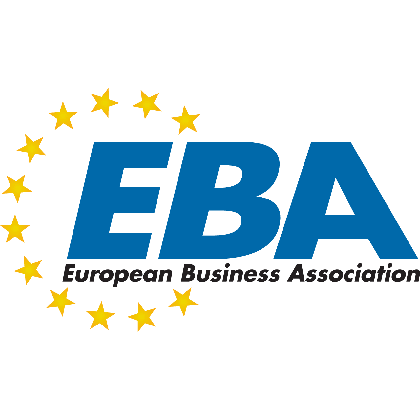In a marketplace where authenticity significantly impacts value, luxury brands face the imperatives of fortifying trust and ensuring the genuineness of their products. Entrusted with preserving the heritage and unique craftsmanship, these brands are now eyeing blockchain technology and non-fungible tokens (NFTs) as a pathway to a secure as well as transparent authentication system.
Through the lens of a Web3 development company, this transition isn't just a trendy shift but a strategic embrace of technology to foster a culture of trust and verifiability. Blockchain's immutable ledger, coupled with the distinctiveness of NFTs, provides a robust framework for tracing the lineage of luxury items, thereby instilling a deeper level of confidence among discerning consumers.
In this post, we'll dissect how blockchain and NFTs are reshaping the authentication paradigm, ensuring that the cherished bond between luxury brands and enthusiasts is not just maintained but significantly enhanced.
Understanding the Value of Authenticity in Luxury Brands
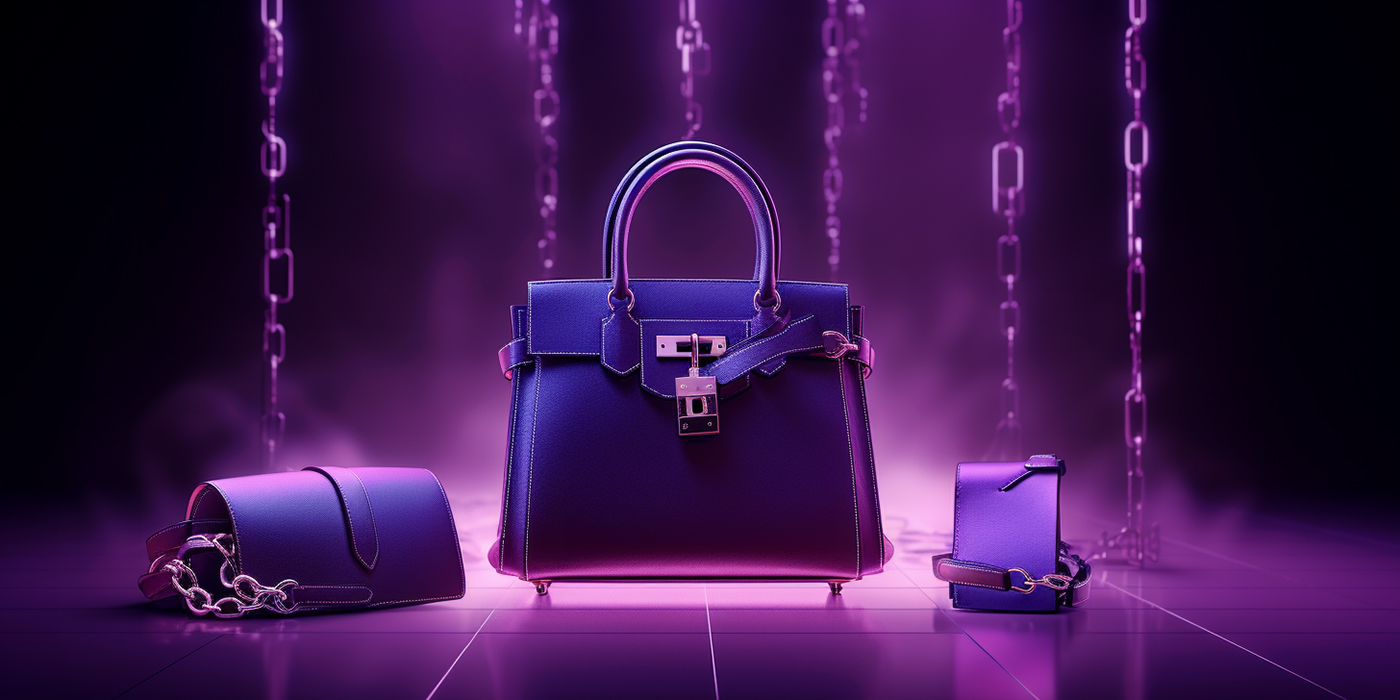
Authenticity in luxury brands is a hallmark that justifies premium pricing and evokes consumer trust. Understanding what Web3 is unveils how to elevate this authenticity, offering a transparent validation system.
The Age-Old Battle Against Counterfeits
Counterfeits have long plagued the luxury industry, eroding brand value and duping customers. The fight against counterfeit goods is not new, but its modern manifestation is getting more intense as global marketplaces become more accessible. Counterfeiters use sophisticated ways to manufacture convincing reproductions, making detection more difficult. Brands have implemented numerous anti-counterfeit procedures, yet many still need to catch up to these illegal activities.
However, the introduction of blockchain technology has the potential to tilt the balance. Its decentralized, irreversible structure makes it a powerful opponent for counterfeit operations, inasmuch as it provides a visible validation process that is extremely difficult to falsify. Luxury businesses may use blockchain to build a traceable genealogy for each item, assuring authenticity from manufacture to purchase. This cutting-edge innovation not only redefines how we tackle counterfeits but also restores faith in luxury brands.
The Trust Factor in High-End Purchases
In high-end purchases, people invest not only in the goods but also in the heritage and authenticity it symbolizes. Guaranteeing authenticity, quality, and value retention impacts luxury purchase decisions. In this industry, the link between brand and consumer goes beyond a transaction to include emotional and aspirational ties.
Transparency in item provenance, enabled by blockchain and NFT technologies, strengthens this connection by giving a clear verification trail. This embracing of technology develops a culture of trust and confidence, making every high-end purchase a secure investment. By implementing these digital verification processes, luxury businesses may significantly increase customer trust, cultivating a devoted and discerning clientele.
Blockchain: The Technology Behind Trust
In distinguishing Web3 vs. metaverse, blockchain emerges as the core technology fostering trust. Its indelible verification mechanisms are pivotal for authenticating luxury brand assets in the digital domain.
How Blockchain Enhances Authenticity
Blockchain's immutable nature is a beacon of trust in a market where authenticity significantly enhances value. Luxury brands are engaging blockchain technology to ensure product genuineness from manufacture to delivery. Here are several avenues through which blockchain technology enhances authenticity in luxury brands:
Provenance tracking. By tracking the provenance of products and materials, blockchain's tamper-proof nature and the swift processing of transactions via its decentralized approach add trust and integrity to luxury brands' operations.
Consortium initiatives. A notable initiative is the Aura Blockchain Consortium, formed by luxury giants LVMH, Prada, and Cartier. This consortium aims at leveraging blockchain for secure and transparent authentication systems.
Product information recording. In the case of Vacheron Constantin, a luxury watch brand, blockchain is employed to upload and store critical product information upon a watch's completion at the company's Geneva factory, offering a transparent verification mechanism.
Proof of authenticity. Blockchain facilitates verifiable and unalterable proof of authenticity, significantly building brand trust. Luxury brands are expanding their offerings to include provable authenticity, thus blossoming consumer trust and loyalty towards the brand.
Tokenized rewards and loyalty programs. Through tokenized rewards and loyalty programs, luxury brands like Prada and Gucci have also ventured into the blockchain, providing a transparent and secure platform for customers to track their rewards, thereby fostering a robust trust infrastructure.
Launch of non-fungible tokens. Blockchain also enables brands to launch limited edition NFTs, satisfying consumer desire for unique, verifiable luxury items. For instance, Prada released several NFTs on the Ethereum blockchain, and McLaren launched an exclusive digital NFT pass, marking their entry into the Web3 industry.
Such moves not only enhance brand value but also provide a secure and transparent medium for consumers to verify the authenticity and ownership of luxury products.
NFTs and Their Rise in the Luxury Market
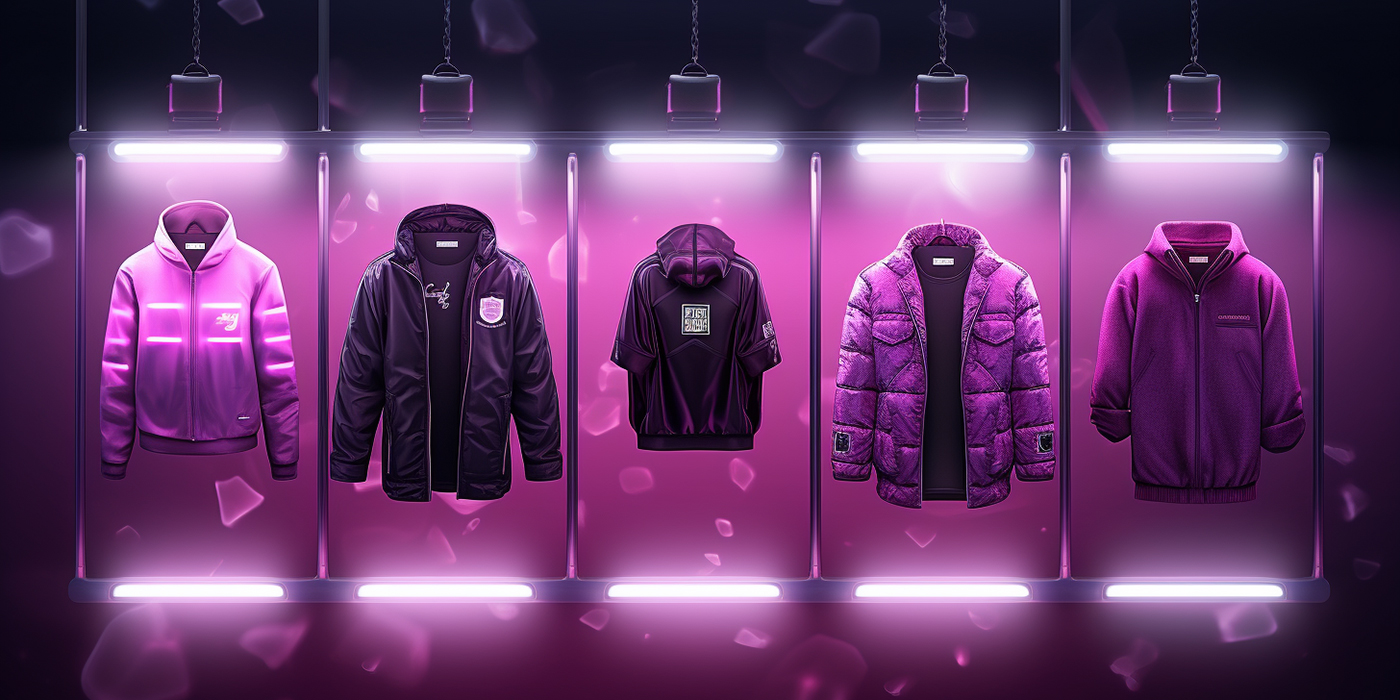
NFTs, embodying ownership and authenticity, have ascended in the luxury market, appealing to modern consumers' desire for unique, verifiable items. They bridge digital innovation with traditional luxury, fostering a new era of exclusivity and trust.
The Unique Properties of NFTs
Non-fungible tokens have emerged as a revolutionary means of representing ownership and authenticity, especially within the digital realm. Here are some unique properties of NFTs:
1. Individual uniqueness. Each NFT is distinct in its characteristics, making every token unique. Unlike fungible tokens, where each unit is interchangeable with any other of the same kind, NFTs have individual properties that set them apart.
2. Irreversible ownership certificate. NFTs serve as an irreversible digital certificate of ownership for a specific asset. This feature is crucial for establishing and verifying ownership, particularly in the digital art and collectibles market.
3. Provably scarce. The scarcity of NFTs is verifiable on the blockchain. Such provable scarcity is fundamental to the value of NFTs, especially in markets like art and collectibles, where rarity often significantly influences value.
4. Blockchain-based transferability. NFTs enable secure and transparent transactions over blockchain, ensuring the transferability of ownership in a trustless environment. This property is fundamental for markets and platforms dealing with digital assets.
5. Indelible authenticity. NFTs provide a clear trail of ownership, authenticity, and provenance secured by blockchain technology. Authenticity is pivotal in sectors like art, collectibles, and any other domain where authenticity is a prime concern.
6. Digital scarcity. By creating a new kind of traceable digital ownership, NFTs enable the concept of digital scarcity. In a digital world where duplication is the norm, NFTs provide a mechanism to establish the uniqueness and ownership of digital assets, thus creating scarcity.
All in all, these properties collectively contribute to the rise and adoption of NFTs across various domains, marking a significant shift in how we perceive ownership and authenticity in the digital age.
NFTs in the World of Luxury Goods
NFTs are edging into the luxury goods business, bringing a new layer of trust, exclusivity, and digital ownership. They are a digital signature of authenticity and originality, both of which are important in the luxury market, where the provenance and uniqueness of things are highly appreciated. Brands may give blockchain-backed evidence of authenticity and ownership by tokenizing luxury objects, supporting a safe and transparent transaction environment.
Luxury firms are also considering NFTs for limited edition releases as part of this digital transformation, adding the exclusivity appeal that frequently surrounds high-end items. On the other hand, consumers obtain digital proof of ownership, which may be a powerful weapon in combating counterfeiting, a recurring problem in the luxury market.
Furthermore, NFTs are paving the way for new revenue streams and creative client interaction, such as digital fashion and virtual luxury experiences. The confluence of NFTs and luxury products is not a fad but a step toward a more authentic, transparent, and customer-centric luxury market.
Real-World Applications: Luxury Brands Embracing Blockchain and NFT
The intersection of blockchain and NFTs with luxury brands unveils a realm of real-world applications. This fusion, driven by the quest for authenticity and unique customer engagement, is revolutionizing luxury commerce.
Case Studies of Brands Using NFTs
Luxury companies are increasingly combining their exclusivity with the distinguishing features of non-traditional retailers. Among the prominent examples are:

Gucci, Dior, and Louis Vuitton have used NFTs to combat counterfeiting, providing blockchain-backed evidence of authenticity for their high-end items. Customers may use this system to confirm expensive objects' provenance and ownership history, boosting trust and brand reputation.
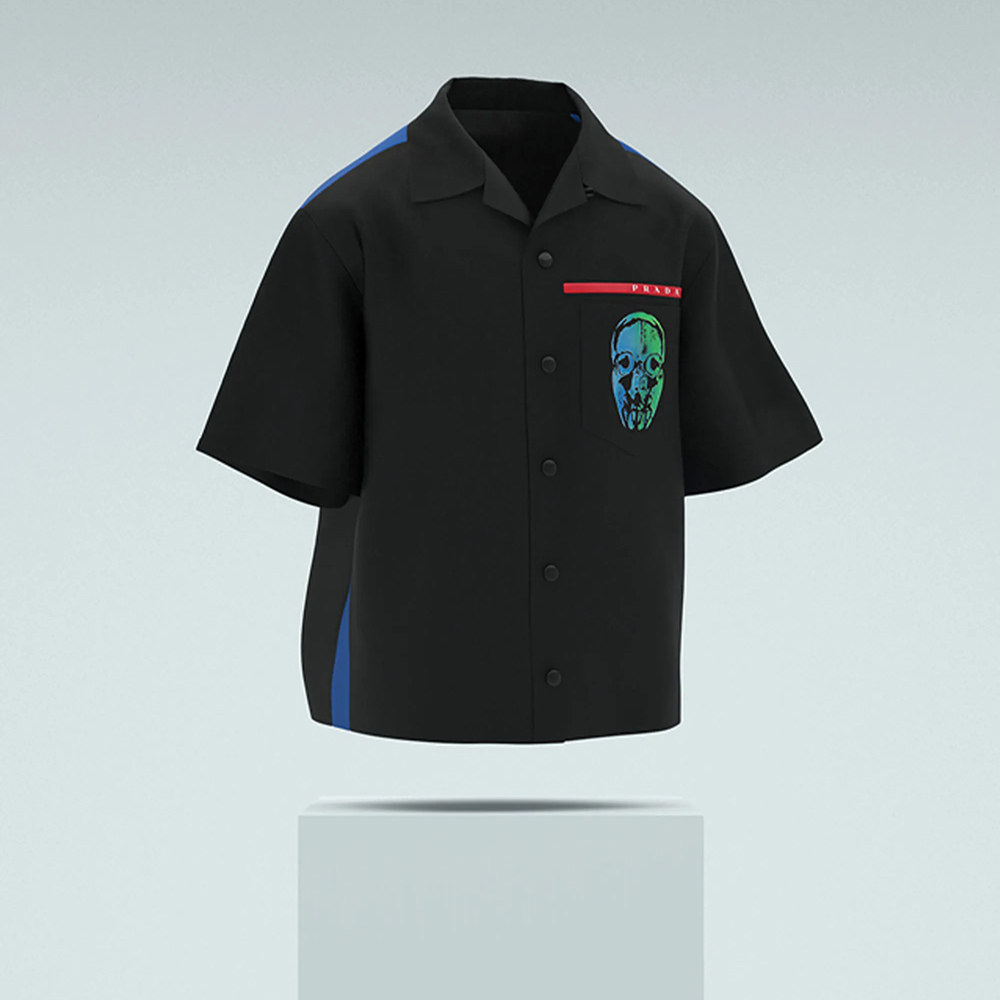
Prada used NFTs to develop and auction off unique virtual clothes in digital fashion shows, upgrading the opulent shopping experience to an inventive digital realm and merging tradition with current technology for a one-of-a-kind consumer experience. This has significantly redefined luxury in modern times.

Balenciaga has adopted NFTs in the metaverse, auctioning digital ensembles as NFTs, delivering a unique combination of fashion and digital ownership, improving the brand's attractiveness and client connection in the virtual world, bridging past elegance with future vision as well as more prospects.
These examples demonstrate how NFTs are essential in retaining the authenticity and exclusivity associated with premium brands while opening the way for creative consumer interaction and brand loyalty in the digital sphere.
The Benefits Realized by Brands
Luxury brands that embrace blockchain and NFTs receive several benefits:
- Enhancement of trust. The immutability of blockchain assures authenticity, encouraging confidence among discriminating customers.
- Customer involvement. Because NFTs are collectible and one-of-a-kind, they encourage a new level of connection by tempting customers with unique digital assets or experiences.
- Combat with forgery. By tokenizing luxury objects, marketers offer a reliable means of verifying authenticity, thereby eliminating counterfeits.
- Increased exclusivity. Introducing limited edition NFTs or unique digital collections enhances the sense of exclusivity, a cornerstone of premium branding.
- Diversification of revenue. NFTs and blockchain provide new income sources such as digital fashion and virtual experiences.
- Brand legacy digitalization. Digitizing brand legacy with NFTs produces a modern brand narrative that resonates with digitally aware customers.
- Community development. Blockchain enables the establishment of brand-centric communities in which customers engage, share, and celebrate the brand's essence.
These advantages lead to improved brand impression, stronger customer interactions, and, possibly, a substantial competitive edge in the fast-changing digital luxury environment.
Challenges and Considerations in Implementing Blockchain with NFTs
Implementing blockchain with NFTs in the luxury sector presents both challenges and considerations. Technical, legal, and market dynamics demand careful navigation to merge digital innovation with luxury brand ethos successfully.
Technical Challenges
| Challenge | Description |
| Integration | Merging blockchain and NFT technology with existing systems can be complex, requiring substantial technical expertise. |
| Scalability | Blockchain networks may face scalability issues as the number of transactions increases, potentially slowing down processes. |
| Interoperability | Ensuring different blockchain networks and platforms interact seamlessly is challenging, which is critical for a unified customer experience. |
| Security | While blockchain is secure, it's not immune to attacks. Ensuring robust security protocols is crucial to protect sensitive data and transactions. |
| Compliance | Adhering to varying legal and regulatory requirements across regions, especially regarding data privacy and consumer protection, poses a technical and legal challenge. |
| Cost | The financial investment required for blockchain integration, including technology development, infrastructure, and maintenance, can be substantial. |
Market and Consumer Reception
The market and consumer reception toward integrating blockchain and NFTs in the luxury sector has been curious and cautious. On one hand, the allure of verified authenticity and the novelty of digital ownership have garnered significant interest from tech-savvy consumers and collectors. They appreciate the transparency, uniqueness, and futuristic shopping experience that these technologies promise.
From another perspective, there exists a segment of traditional luxury consumers who value tactile experiences and may find the digital transition challenging to embrace. The market also observes a learning curve as brands and consumers navigate the technical and conceptual aspects of blockchain and NFTs.
Moreover, market reception is influenced by regulatory landscapes, which vary globally, impacting the pace and extent of adoption. While some regions have welcomed blockchain with open regulatory frameworks, others tread cautiously due to legal and data privacy concerns.
The juxtaposition of digital innovation and traditional luxury ethos presents a complex market scenario. The success of blockchain and NFT integration heavily relies on educating consumers, addressing legal concerns, and seamlessly blending the digital with the tactile luxury experience.

The Future for Luxury Brands and Digital Authenticity
The convergence of premium brands with digital authenticity offers promise for the future. Brands that embrace blockchain and NFTs may increase trust, prevent counterfeiting, and provide unique consumer experiences. This digital transformation is set to reshape the conventional boundaries of luxury business.
Predictions for the Next Decade
Predictions indicate a flourishing future for luxury brands embracing NFTs and blockchain technology in the next decade. Financial analysts from Morgan Stanley anticipate a robust expansion of the luxury NFT market, estimating it could reach a staggering $56bn by 2030, propelled by the burgeoning metaverse and the dramatic uptick in demand for digital fashion and luxury goods.
This growth is part of a more significant trend, with the total NFT market projected to escalate to roughly $240bn by the end of 2030, with luxury brands contributing an 8% share. The digital shift is already underway, with luxury brands making their digital debut slowly but surely. Collaborations with gaming and metaverse platforms are emerging as the new frontier for these brands, offering a glimpse into the potential of virtual luxury markets.
These developments signal a paradigm shift, unlocking perpetual earning possibilities for brands, thanks to blockchain's smart contract technology, and opening up luxury brands to an even younger, more digital-savvy consumer base.
Furthermore, the luxury market is expected to see a significant portion of its growth driven by integrating NFTs. A bank estimated that by 2030, the total NFT market could account for 10% of the luxury market, spotlighting the massive potential for virtual and hybrid luxury goods. The sale of nine NFTs by Dolce & Gabbana for $5.7m exemplifies the immense potential encapsulated in this digital leap.
How Brands Can Stay Ahead
Luxury businesses can explore the following measures to remain ahead of the digital curve:
- Adaptation. Use blockchain and NFT technology to maintain authenticity and provide one-of-a-kind digital assets.
- Education. To build acceptance and simplify the transition, educate customers and stakeholders on the benefits and operation of NFTs.
- Collaboration. Form alliances with technology companies and investigate cooperation with gaming and metaverse platforms to grow digital footprints.
- Innovation. Continuous innovation in digital products is required to keep up with changing consumer tastes and technological breakthroughs.
- Regulatory compliance. Keep current on worldwide regulatory developments to guarantee compliance and reduce legal risks.
- Consumer engagement. Engage customers in the digital environment by utilizing NFTs to boost brand loyalty and create immersive experiences.
By implementing these methods, luxury businesses may gain a favorable position in the digital transition, assuring relevance and competitiveness in the evolving digital luxury scene.
You can directly get in touch with our blockchain and NFT experts to find out how we can be of assistance to your luxury brand. Let’s build something great together!
The New Era of Trust in Luxury Brands with Program-Ace
Luxury businesses wanting to incorporate blockchain and NFT technologies in the booming digital arena require a dependable partner. Our custom software development company can become your go-to solution. Program-Ace offers a seamless transfer to the digital arena, embodying the spirit of luxury in blockchain and NFT projects, with a strong experience building unique digital solutions.
You can take advantage of our reliable solutions as well as the unique mix of technical expertise and awareness. By contacting us, your company is likely to embrace cutting-edge technology and usher in a new age of trust and authenticity, ensuring that your legacy flourishes in the digital frontier.



